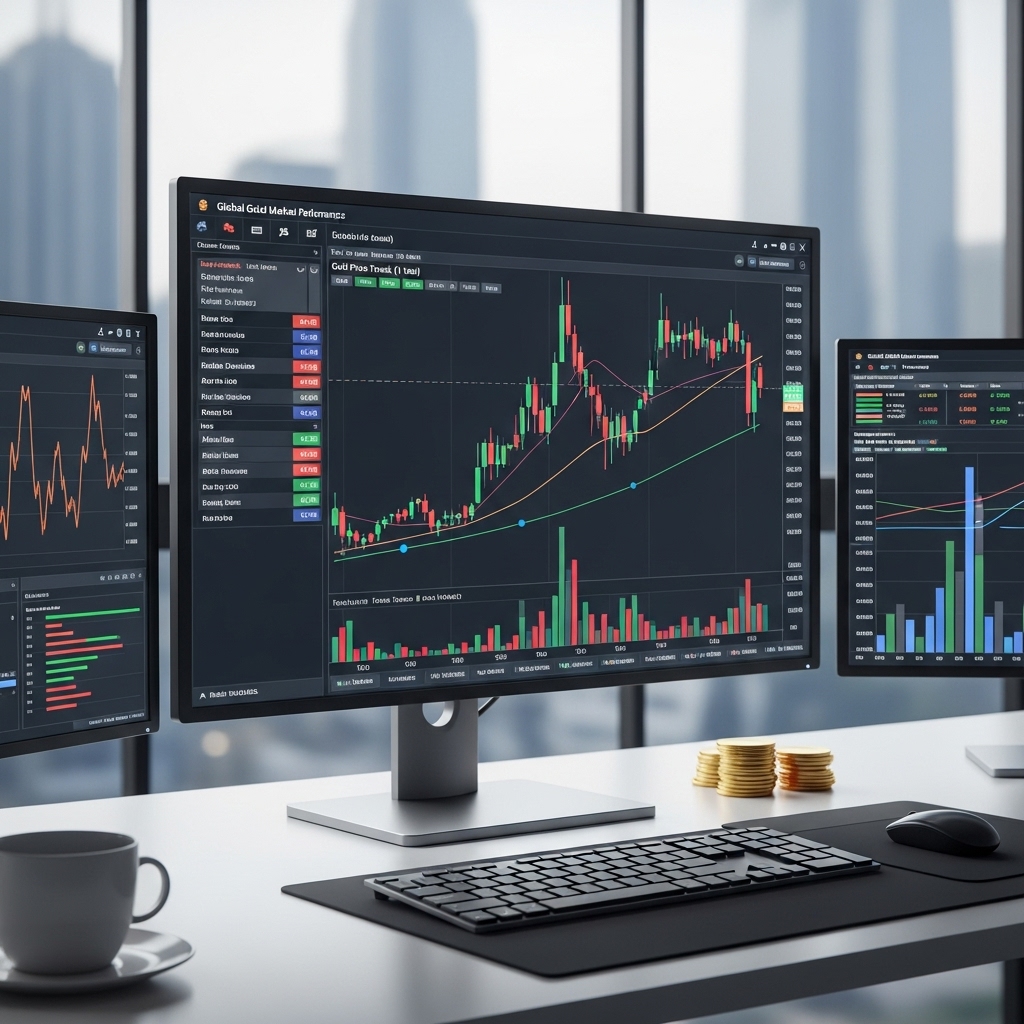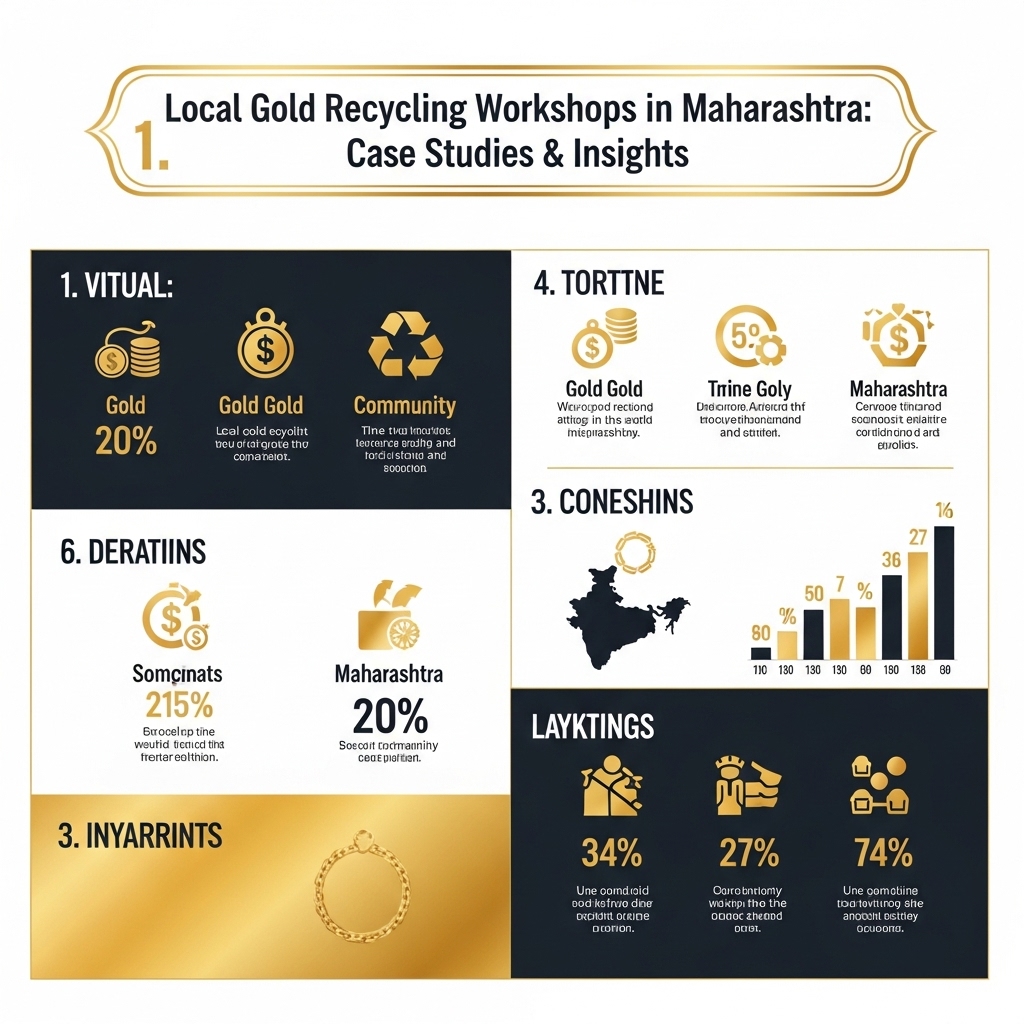Unearthing Value: Maharashtra’s Local Gold Recycling & Your Investment Edge
The yellow metal continues its impressive run, solidifying its role as a premier safe-haven asset amidst global economic uncertainties and inflationary pressures. For astute investors, simply tracking international spot prices isn’t enough; true market intelligence lies in understanding the intricate supply chains that influence regional availability and pricing. This is where India, the world’s largest gold consumer, offers a unique lens, particularly through the burgeoning network of local gold recycling workshops in states like Maharashtra. These often-overlooked hubs are not just local businesses; they are vital arteries in the global gold ecosystem, holding significant implications for your investment strategy and potential financial returns.
Understanding these grassroots operations provides invaluable insight into local gold market trends, supply dynamics, and even pricing arbitrage opportunities that mainstream analyses often miss. These workshops efficiently transform discarded gold into pure, investable metal, significantly contributing to India’s gold supply without relying on costly imports. For investors, this translates into potential access to gold with lower premiums, a more liquid local market for selling old jewelry, and a deeper comprehension of factors influencing regional gold rates – all crucial for optimizing entry and exit points in your gold portfolio.
In this insightful blog post, we will delve into fascinating case studies of local gold recycling workshops across Maharashtra. We’ll explore their operational mechanics, analyze their profound contribution to the overall gold supply, and, most importantly, uncover the tangible financial benefits and strategic advantages they offer to gold investors looking to deepen their understanding of this evergreen asset. Prepare to gain a nuanced perspective on gold investing that extends beyond mere headlines, offering actionable insights to enhance your portfolio’s performance.
Gold Market Analysis and Key Insights
Maharashtra’s vibrant gold market, significantly bolstered by local recycling workshops, presents unique investment dynamics. Understanding these nuances is crucial for both consumers and investors considering gold as an asset.
Resilience of Gold as an Asset
Gold continues to demonstrate remarkable resilience as a safe-haven asset, particularly amidst global economic uncertainties and inflationary pressures. Its intrinsic value, unlike paper currency, has historically preserved wealth, making it a cornerstone of prudent investment strategies. Local gold recycling workshops contribute directly to this market, providing a continuous, sustainable supply of refined gold, which reduces reliance on fresh imports and enhances domestic market liquidity.
Demand Dynamics and Cultural Integration
Demand for gold in Maharashtra is deeply rooted in cultural traditions, festive occasions, and its perceived security as an investment. This consistent local demand, irrespective of global fluctuations, ensures a robust internal market for gold. Recycled gold from workshops often finds its way back into this cycle, catering to both immediate consumer needs and long-term investment aspirations, reflecting a unique local circular economy.
Current Gold Market Trends and Data
The gold market has witnessed substantial upward momentum globally, with prices reaching near all-time highs in recent periods, driven by geopolitical tensions, inflation concerns, and a fluctuating dollar. This strong performance underscores its appeal as a hedge against volatility. The domestic market often mirrors these global trends, albeit with regional specificities influenced by local supply chains, where recycled gold plays a crucial role in stabilizing availability and pricing.
Investment Benefits and Considerations:
Investing in physical gold, often sourced or refined through local workshops, offers tangible benefits like inflation hedging, portfolio diversification, and high liquidity. However, considerations include storage security, ensuring purity and hallmark verification, and understanding transaction costs associated with buying and selling. Due diligence on the workshop’s reputation is vital.
Expert Recommendations:
Financial experts typically recommend a long-term strategic approach to gold investment, allocating a modest portion (generally 5-15%) of one’s portfolio. For those considering physical gold from local sources, meticulous verification of purity certificates is paramount. Diversifying beyond physical gold into instruments like Sovereign Gold Bonds (SGBs) or gold ETFs can also offer varied exposure and liquidity, while still benefiting from gold’s inherent stability.

Gold Investment Strategies and Options
For local gold recycling workshops in Maharashtra, strategic gold investment extends beyond mere inventory management to comprehensive wealth preservation and growth. Core to their operations is physical gold, whether as raw scrap, refined bullion, or finished recycled products. This primary investment serves as both working capital and a store of value. However, physical holdings entail specific risks like theft, storage costs, and purity assessment challenges, alongside price volatility.
Diversification is crucial. Workshops can explore financial gold instruments like Sovereign Gold Bonds (SGBs) and Gold Exchange Traded Funds (ETFs). SGBs offer interest income and potential tax benefits, ideal for long-term capital appreciation without the need for physical possession. Gold ETFs provide liquidity and allow participation in price movements without storage concerns, offering a convenient way to gain market exposure.
Comparing methods, physical gold offers direct business utility but demands robust security and meticulous purity checks. Financial instruments, conversely, provide ease of transaction, high liquidity, and eliminate storage liabilities, but lack the tangible utility for a recycling business.
Risk assessment for workshops involves diligently monitoring gold price volatility and managing operational risks associated with their physical stock. Portfolio allocation should prioritize efficient inventory management, while earmarking a portion of surplus capital for financial gold investments. This diversified approach hedges against physical risks and achieves broader market exposure.
Market timing is paramount. For physical gold, strategic procurement of scrap during favorable price dips and timely sales of refined products maximize profit margins. For financial instruments, employing a dollar-cost averaging strategy can mitigate volatility risks. Continuous market analysis and a balanced approach leveraging both physical and financial gold instruments are key to sustainable growth and robust risk mitigation for these enterprises.
Market Performance and Outlook
Historically, gold recycling in Maharashtra was predominantly an informal, fragmented activity. Over the past decade, however, the landscape has transformed, witnessing the emergence and formalization of dedicated local gold recycling workshops. This evolution is driven by growing consumer awareness regarding purity and fair value, alongside the rising accessibility of these specialized services.
Currently, the market for recycled gold is robust. High global gold prices, fuelled by economic uncertainties, geopolitical tensions, and inflationary pressures, act as a significant incentive for consumers to monetize their old or unused gold jewellery. These workshops capitalize on this trend, providing a trusted, local avenue for selling scrap gold, thus meeting both consumer needs and the demand from jewelers for cost-effective, readily available gold.
The future outlook for these workshops is highly positive. Gold’s enduring appeal as a safe-haven asset suggests continued price strength, ensuring a steady supply of recycled material. Increased professionalization, adoption of better refining technologies, and potential government initiatives to formalize the sector further could see these workshops play an even more critical role in India’s domestic gold supply chain, reducing reliance on costly imports.
Frequently Asked Questions About Gold Investment
What are local gold recycling workshops and why should I attend?
These workshops, held across Maharashtra, educate you on how to safely and efficiently recycle your old or unwanted gold. Attending provides valuable insights into the process, helps you understand purity testing, and can potentially lead to better returns on your gold compared to unorganized methods.
How do these workshops ensure fair pricing for my gold?
Reputable workshops partner with certified assayers and refiners who use precise methods for determining gold purity and weight. They provide transparent pricing based on current market rates and the validated purity, giving you confidence in the transaction.
Can I learn about different gold investment options at these workshops?
While the primary focus is recycling, many workshops offer general guidance on gold investment. You might gain insights into understanding gold purity, recognizing hallmarked jewelry, and the benefits of holding gold as a part of your investment portfolio.
What are the benefits of recycling gold through these organized workshops?
Benefits include getting a fair price for your gold, ensuring secure and transparent transactions, and understanding the environmental advantages of recycling. It’s a responsible way to convert dormant gold into tangible value.
Are there any specific documents required to participate in a gold recycling workshop?
Typically, you will need a valid government-issued ID for identification purposes. Some workshops might also request proof of ownership or a general declaration regarding the gold you are bringing.

Final Thoughts on Gold Investment
Our journey through Maharashtra’s local gold recycling workshops highlights their critical role. For investors, the key takeaway is that these workshops offer a transparent, accessible, and ethical avenue to liquidate old or unused gold, ensuring fair value and purity. They significantly bolster local economies and promote sustainable gold sourcing, reducing reliance on newly mined resources.
My final recommendation is to actively leverage these local recycling channels when considering divesting gold assets. It’s a smart strategy to unlock immediate liquidity from dormant gold, often with more favorable terms than conventional jewelers. Don’t let your old gold sit idle; convert it into capital or for reinvestment. Research reputable local workshops and join this smart, sustainable gold ecosystem.